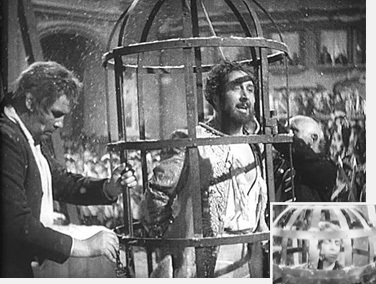Francine Prose on Nazi propaganda:
‘In addition to the films designed to dehumanize Jews and justify the Final Solution, Joseph Goebbels’s propaganda machine also produced a wide variety of lesser-known works that demonized the British and French, glorified war, and attempted to rewrite history in accordance with the National Socialist agenda. A long section of Moeller’s documentary deals with a film entitled Homecoming (1941), which characterized the invasion of Poland as a humanitarian rescue mission launched to save ethnic Germans from brutal mistreatment by the Poles. A horrifying sequence shows a young German woman being stoned to death by Polish children whose murderous efforts are redoubled when a man tears a delicate swastika pendant from around the victim’s neck. In another scene, German prisoners are comforted by a woman’s oration about the joys of going home, where they will no longer be forced to hear Yiddish and Polish spoken in the shops, and where they will be surrounded only by other Germans.
The questions that animate Forbidden Films—Should these films be publicly shown?’
(…)
‘It’s Aly who is given the last word in Forbidden Films. The ban on the films, he says, is “as ridiculous as the ban on Mein Kampf…. I think we should make it all freely available and we’ll just have to talk about it. Of course there’ll be abuse. But I think it’s better than when it’s all covered up.” It’s as apt a conclusion as the shots of the fortified film bunker are a beginning. Moeller’s documentary has taken an important step toward opening a discussion that can only be more useful than silence, or than the warehousing of these films in a structure where they remain unseen, prohibited—and liable to explode.’
Read the article here.
We’ve become much better at propaganda, whatever we wish to propagandize, whether the cause is immoral or not doesn’t matter, we are just so much better at propaganda. This is where we really excel.
And secondly, prohibition is not a very good idea, but to look at the past from the all too comfortable position that we’ve learned from the mistakes of our grandparents or great-grandparents is perhaps not very useful either.
